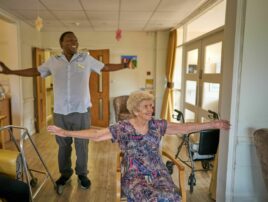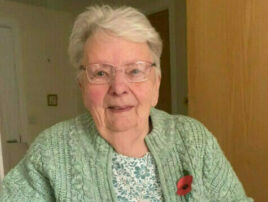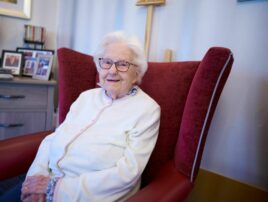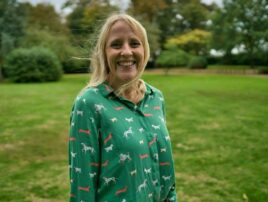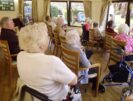
Monday 13th May 2024
No man is an island
Louise Morse
John Donne’s poem, ‘For Whom the bell tolls,’ was written in the 16th century but speaks movingly into the assisted dying debate today. Some argue that having assisted suicide is a basic human right, and that each individual is free to choose. Those who point out that when legalised assisted dying rapidly extends to those unable to defend themselves, argue otherwise.
No man is an island,
Entire of itself.
Each is a piece of the continent,
A part of the main.
If a clod be washed away by the sea,
Europe is the less.
As well as if a promontory were.
As well as if a manor of thine own
Or of thine friend's were.
Each man's death diminishes me,
For I am involved in mankind.
Therefore, send not to know
For whom the bell tolls,
It tolls for thee.
Some years ago the death by suicide of an elderly Japanese man on a train caught the international headlines. Seemingly, he could find no solution to his money problems so chose to die by pouring fuel over himself and setting light to it. He was on a train at the time and his action also set fire to the woman passenger sitting next to him. Reports in the UK press of Japanese media headlines were eye-opening. There was more outrage at the injuries to the woman than sympathy for the man. Japanese culture is much more ‘group’ minded than the individualistic West’s, and assisted suicide is illegal. Suicide without assistance is not illegal. Many argue that to involve the medical profession in an act that ends life is against the grain of their work ethic, which is to protect it.
So on the one hand we have, ‘it’s my human right,’ with no consideration for vulnerable people for whom it becomes an obligation, and on the other hand people and organisations like Care Not Killing, who are pushing back.
A letter in the Economist, written by a Professor of Clinical Medicine, summed it up succinctly.
‘Arguments to justify assisted dying take “individual freedom” one step too far. Suicide is a serious matter with an impact far beyond the person whose life is ended. Friends and caregivers experience remorse and guilt. Once legalised, assisted dying rapidly extends to those unable to defend themselves.
‘Regardless of how many restrictions are put in place, permission rapidly extends to non-terminal patients, because once a “right” to suicide is conceded, how can such a right be denied to others?
‘In Canada more than 60,000 individuals have ended their life by assisted dying since legalisation in 2016. The rates are increasing, and are expected to account for 5% of all deaths by 2025. In some urban areas of the Netherlands 12-14% of deaths occur by that means. In Belgium annual rates continue to increase by 10-15% a year. At highest risk are people unable to afford or obtain necessary care as well as those with a mental illness. In Canada in 2022 alone, 2,264 individuals terminated their lives because of loneliness; 323 persons died unable to obtain palliative care and 196 disabled persons did with inadequate support.
‘We understand that those supporting assisted dying are motivated by sincere compassion, but it is misguided. Every terminally ill, suffering patient should invoke compassion, but suicide is not the answer. Rather, we must strive to improve end-of-life care and work to obtain the resources to relieve each individual person’s pain.’
Celebrity Esther Ranzten has been interviewed about her views on assisting dying and her decision to have an assisted suicide, but I haven’t read her thoughts on how vulnerable people can be protected from feeling obligated. It would be interesting because she founded ‘Silverline’, a telephone help service for older people which, conceivably, would have taken calls on the topic.
More from Pilgrims' Friend Society

Meet a Hummingbird... Susan >
As a Hummingbird at Shottermill House, Susan provides practical, emotional and spiritual support to our family members

10 skills and qualities you need to be a carer >
Caring has been unfairly labelled by some as a low-skilled role. Our Operations Manager Jane Trimarco highlights the skills and qualities that show it’s anything but

Lucy shares the vision for Christians in Care >
Lucy Honeysett, Lead Coordinator of Christians in Care, shares why she’s passionate about leading this initiative

